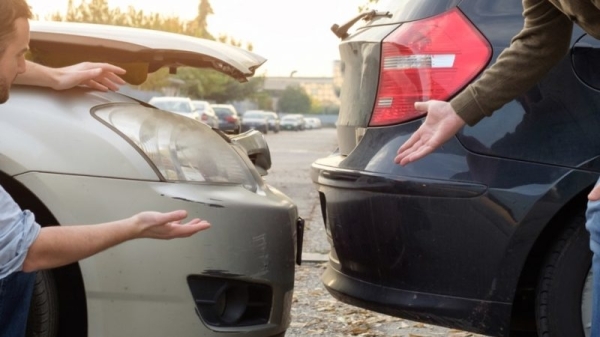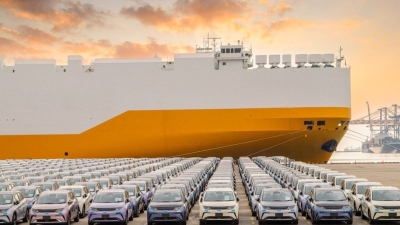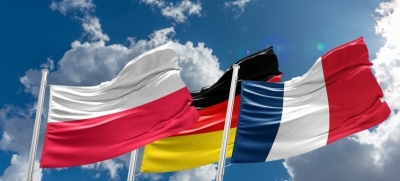Bulgarian insurer complains of car repair extortion scheme in Romania

Eurohold Bulgaria, a leading energy and financial group in Southeast Europe, has sent a complaint to the Bulgarian prosecution regarding what it said is “extortion and corruption of extraordinary proportions” harming its Romanian subsidiary, EURACTIV Bulgaria has learned.
The move follows a similar action taken by the Romanian financial regulator ASF on 21 February. According to the Romanian press, in only two months, Euroins, Eurohod’s subsidiary in Romania, has rejected 5,603 car insurance claims “without a reason”, which prompted the regulator to reach out to the prosecution.
Euroins is the largest insurer in the Romanian market. On 10 February, Eurohold issued a press statement describing what it said was an organised attack against its Romanian subsidiary.

Bulgarian insurer decries Romanian ‘attack’ as destabilising for region
Eurohold Bulgaria, a leading energy and financial group in Southeast Europe, said it has been the victim of an “organised attack” against its subsidiary in Romania which has the potential to destabilise the entire region.
Eurohold told EURACTIV on Wednesday (1 March) that car insurance claims are being denied because of abusive practices by certain car repair workshops in Romania, which they said charge up to five to six times the normal rate.
Eurohold also complained of a campaign in the Romanian media, led by the website Libertatea, aimed at destabilising it, as well as the wider Romanian insurance and financial market.
Assen Hristov, chairman of Eurohold’s advisory board, confirmed to EURACTIV on Wednesday that his company had alerted the Bulgarian prosecution, flagging “corruption of extraordinary proportions”.
According to lawyer Liviu Chiric, with whom EURACTIV spoke, legislation introduced in Romania in 2017 opened the door for the problems Euroins is now facing.
The law introduced and defined a new term of “agent” that can step in to represent a claimant’s interest with the insurer. This has helped create a powerful group capable of establishing its own rules, said Chiric.
Also, according to this law, the value of the repair is established by the car repair units themselves, using their own man hour values. Accordingly, some workshops have raised their hourly rates from 50 lei (roughly €10) to 1,000 lei (€200).
In addition, as Chiric explained, certain car repair workshops always inflate the cost of their work to bring it just below the market value of the car, as the repair price should not exceed the market value of the car.
To achieve that, Chiric said that excessive working hours were charged in case of minor damage, while for major damage, lower hourly fees were applied, in both cases setting the final invoice just below the car market value.
Moreover, Chiric said, rogue car repair workshops regularly invoiced Euroins for the rented cars given to the client for the duration of the repair at an inflated rate of €100 a day for a low-end car such as Dacia Logan.
Kiril Boshov, CEO of Eurohold, told EURACTIV that he was aware of a chain of workshops belonging to Florin Pandele, administrator and shareholder of Auto Car Group.
He explained that when Euroins rejected the inflated claims, a well-oiled system produced court cases on different accounts – usually four different cases per rejected claim.
The number of litigations thus mushroomed, triggering the reaction of the regulator, ASF, in the form of heavy fines. Consequently, Euroins had the choice of paying the fines or accepting inflated claims.
Boshov confirmed that Pandele was named in Eurohold’s submission to the Bulgarian prosecution.
Pandele and Cristian Rosu, the head of ASF, didn’t reply when EURACTIV tried to reach them on their mobile numbers on Wednesday and Thursday.
[Edited by Zoran Radosavljevic/Benjamin Fox]



